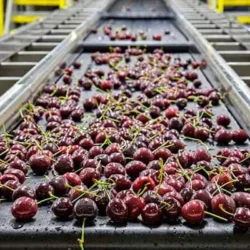SOUTHERN African Biogas Industry Association (SABIA) secretary Gordon Ayres is almost annoyed by the assumption that Biogas is assumed to be gas.
Though the word gas is in its name, Ayres says a more accurate description is to call it a bio-fertiliser or organic fertiliser, which is derived from waste.
Given the confusion, Ayres says there is a need to educate the people on what bio-fertilisers are. ”I feel there is a massive misunderstanding about the role of biogas and how the public understands it.”
Though the broader public might not know much about bio-fertilisers, they felt their impact when the war in Ukraine — a significant fertiliser producer — impacted supply and pushed up prices.
Ayres says the conflict “multiplied the cost of putting fertiliser into the field by a factor of 300.”
Aside from the war, the structure of global fertiliser markets put South Africa in a weak negotiating position.
For example, a blog by the Africa Policy Research Institute underlined Africa’s vulnerability to being dependent on a handful of countries that produce nutrient-rich fertiliser.
“Even before the outbreak of war in Ukraine, fertiliser prices across Africa were higher in comparison to other regions of the world. In South Africa, for instance, the prices of ammonium nitrate, urea and phosphate fertilisers were 79% higher in 2022 than their international equivalents in 2019 and 2020,” said the institute.
The price hike resulting from the war forced local farmers to look to alternative sources of fertilisers, which resulted in them turning to bio-fertilisers.
Ayres says this has seen a notable increase in demand for bio-fertilisers.
“Before the Ukrainian war, it wasn’t that big, but people are incentivised to use our products now. It has been a big driver for growth.”
How significant an impact it has had is not clear, as bio-fertiliser producers are not sharing that information with SABIA.
Though the scale of the growth is unclear, those looking to resell it have to register it.
“As a standard, we use a B-grade fertiliser, so it’s the organic. And that’s set up by the Department of Agriculture. You’ve got to register your product if you want to resell it.”
Those farms producing bio-fertiliser for their own need, however, do not have to register.
Ayres says bio-fertilisers are gaining traction in South Africa because they offer security of supply and are more environmentally friendly.
“It’s better for the environment because it’s a probiotic fertiliser. It’s going to help with the background microorganisms in the soil and so on to allow natural bacteria to take place. You’re going to get things like earthworms in farming soils.”
Notably, bio-fertilisers also do not contain sodium.
“In the Bible, it says that if you want to destroy your enemies, you would plant your land with salt. We’ve been doing that to ourselves without anybody having to do it to us at all. We’ve been very carefully planting our own land with salt by using chemical fertilisers that carry a certain amount of sodium in them.”
Aside from benefiting the agriculture sector, bio-fertilisers are also well set to boost the overall economy.
If the sector is supported, it can create over 30 000 permanent jobs and 141 000 construction jobs, and reduce carbon emissions by 9,88 tons/year within five years.




